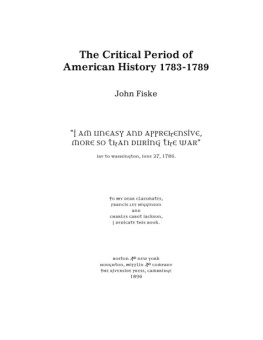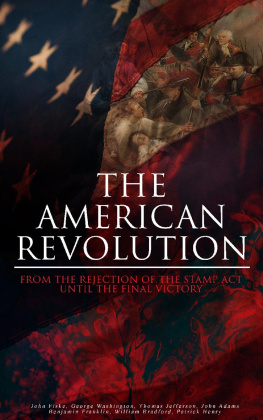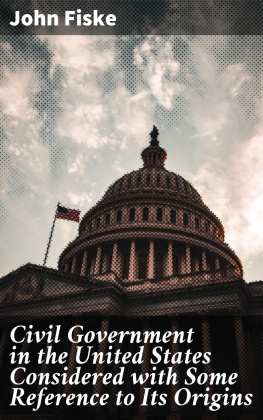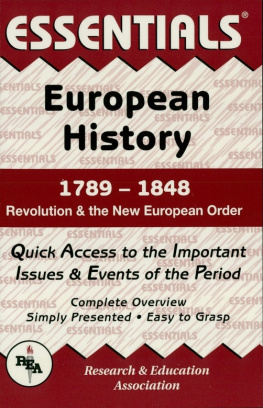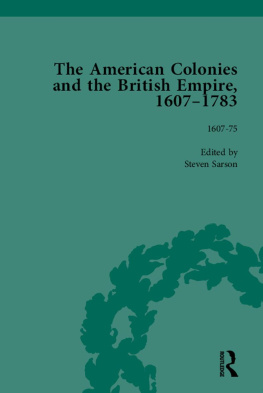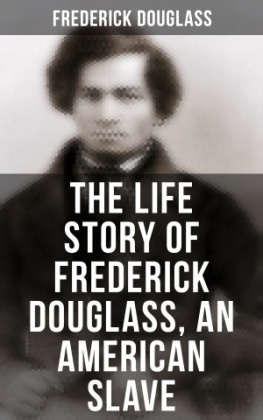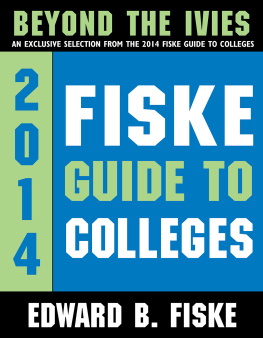John Fiske - The critical period of American history, 1783-1789
Here you can read online John Fiske - The critical period of American history, 1783-1789 full text of the book (entire story) in english for free. Download pdf and epub, get meaning, cover and reviews about this ebook. year: 1898, publisher: Printed at the Riverside Press, genre: History. Description of the work, (preface) as well as reviews are available. Best literature library LitArk.com created for fans of good reading and offers a wide selection of genres:
Romance novel
Science fiction
Adventure
Detective
Science
History
Home and family
Prose
Art
Politics
Computer
Non-fiction
Religion
Business
Children
Humor
Choose a favorite category and find really read worthwhile books. Enjoy immersion in the world of imagination, feel the emotions of the characters or learn something new for yourself, make an fascinating discovery.
- Book:The critical period of American history, 1783-1789
- Author:
- Publisher:Printed at the Riverside Press
- Genre:
- Year:1898
- Rating:5 / 5
- Favourites:Add to favourites
- Your mark:
- 100
- 1
- 2
- 3
- 4
- 5
The critical period of American history, 1783-1789: summary, description and annotation
We offer to read an annotation, description, summary or preface (depends on what the author of the book "The critical period of American history, 1783-1789" wrote himself). If you haven't found the necessary information about the book — write in the comments, we will try to find it.
John Fiske: author's other books
Who wrote The critical period of American history, 1783-1789? Find out the surname, the name of the author of the book and a list of all author's works by series.
The critical period of American history, 1783-1789 — read online for free the complete book (whole text) full work
Below is the text of the book, divided by pages. System saving the place of the last page read, allows you to conveniently read the book "The critical period of American history, 1783-1789" online for free, without having to search again every time where you left off. Put a bookmark, and you can go to the page where you finished reading at any time.
Font size:
Interval:
Bookmark:
The Critical Period of
American History 1783-1789
John Fiske
I am uneasy and apprehensive,
more so than during the war
Jay to Washington, June 27, 1786.
To My Dear Classmates,
Francis Lee Higginson
and
Charles Cabot Jackson,
I Dedicate this Book.
Boston & New York
Houghton, Mifflin & Company
The Riverside Press, Cambridge
1896
Preface
This book contains the substance of the course of lectures given in the Old South Meeting-House in Boston in December, 1884, at the Washington University in St Louis in May, 1885, and in the theatre of the University Club in New York in march, 1886. In its present shape it may serve as a sketch of the political history of the United States from the end of the revolutionary war to the adoption of the Federal Constitution. It makes no pretensions to completeness, either as a summary of the events of that period or as a discussion of the political questions involved in them. I have aimed especially at grouping facts in such a way as to bring out and emphasize their casual sequence, and it is accordingly hoped that the book may prove useful to the student of American history.
My title was suggested by the fact of Thomas Paines stopping the publication of the Crisis, on hearing the news of the treaty of 1783, with the remark, The times that tried mens souls are over. Commenting upon this, on page 55 of the present work, I observed that so far from the crisis being over in 1783, the next five years were to be [begin page vi] the most critical time of all. I had not seen Mr. Truscotts Diplomatic History of the Administrations of Washington and Adams, on page 9 of which he used almost the same words: It must not be supposed that the treaty of peace secured the national life. Indeed, it would be more correct to say that the most critical period of the countrys history embraced the time between 1783 and the adoption of the Constitution in 1788.
That period was pre-eminently the turning-point in the development of political society in the western hemisphere. Though small in their mere dimensions, the events here summarized were in a remarkable degree germinal events, fraught with more tremendous alternatives of future welfare or misery for mankind than it is easy for the imagination to grasp. As we now stand upon the threshold of that mighty future, in the light of which all events of the past are clearly destined to seem dwindled in dimensions and significant only in the ratio of their potency of causes; as we discern how large a part of that future must be the outcome of the creative work, for good or ill, of men of English speech; we are put into the proper mood for estimating the significance of the causes which determined a century ago that the continent of North America should be dominated by a single powerful and pacific federal nation instead of being parcelled out among forty or fifty small communities, wasting their strength and lowering their moral [begin page vii] tone by perpetual warfare, like the states of ancient Greece, or by perpetual preparation for warfare, like the nations of modern Europe. In my book entitled
American Political Ideas, viewed from the standpoint of Universal History, I have tried to indicate the pacific influence likely to be exerted upon the world by the creation and maintenance of such a political structure as out Federal Union. the present narrative may serve as a commentary upon what I had in mind on page 133 of that book, in speaking of the work of our Federal Convention as the finest specimen of constructive statesmanship that the world has ever seen. On such a point it is pleasant to find ones self in accord with a statesman so wise and noble as Mr. Gladstone, whose opinions is here quoted on page 233.
To some persons it may seem as if the years 1861-65 were of more cardinal importance that the years 1783-89. Our civil war was indeed an event of prodigious magnitude, as measured by any standard that history affords; and there can be little doubt as to its decisiveness. The measure of that decisiveness is to be found in the completeness of the reconciliation that has already, despite the feeble walls of unscrupulous place-hunters and unteachable bigots, cemented the Federal Union so powerfully that all likelihood of its disruption may be said to have disappeared forever. when we consider this wonderful harmony which so soon [begin page viii] has followed the deadly struggle, we may well believe to be the index of such a stride toward the ultimate pacification of mankind as was never made before. But it was the work done in the years 1783-89 that created a federal union capable of enduring the storm and stress of the years 186165. It was in the earlier crisis that the pliant twig was bent; and as it was bent, so has it grown; until it has become a goodly and a sturdy tree. Cambridge, October 10, 1888.
Contents
Page
Preface
Chapter 1 Results of Yorktown
Fall of Lord Norths ministry.
Sympathy between British Whigs and the revolutionary
party in America.
It Weakened the Whig party in England.
Character of Lord Shelburne
Political Instability of the Rockingham Ministry.
5,6
Obstacles in the way of a treaty of peace.
7,8
Oswald talks with Franklin.
9-11
Grenville has an interview with Vergennes.
Effects of Rodneys Victory
Misunderstanding between Fox & Shelbourne
Fall of the Rockingham Ministry
Shelbourne becomes prime Minister.
Defeat of the Spaniards and French at Gibraltar
French policy opposed to American Interests.
The Valley of the Mississippi; Arandas policy.
The Newfoundland fisheries.
Jay detects the schemes of Vergennes
And sends Dr. Vaughn to visit Shelbourne
John Adams arrives in Paris and joins with Jay
in insisting upon a separate negotiation with England 23,24
The separate American treaty, as agreed upon:
1. Boundaries.
2. Fisheries; commercial intercourse.
3. Private debts.
4. Compensation of loyalists.
28-32
Secret article relating to the Yazoo boundary.
Vergennes does not like the way
in which it has been done.
On the part of the Americans
it was a great diplomatic victory.
Which commissioners won by disregarding
the instructions of Congress and acting
on their own responsibility.
The Spanish treaty.
The French treaty.
Coalition of Fox with North.
38-42
They attack the American treaty in Parliament.
And compel Shelbourne to resign.
Which leaves England without a government, while for
several weeks the king is too angry to appoint
ministers.
Until at length he succumbs to the coalition, which
presently adopts and ratifies the American treaty.
The coalition ministry is wrecked upon Foxs India Bill. 46
Constitutional crisis ends in the overwhelming victory 47
of Pitt in the elections of May, 1784.
And this, although apparently a triumph for the King,
was really a death-blow to his system of personal
48,49
government.
Chapter 2 The Thirteen Commonwealths
Cessation of hostilities in America.
Departure of the British troops.
Washington resigns his command.
And goes home to Mount Vernon.
His legacy to the American people.
The next five years were the most critical years
in American history.
Absence of a sentiment of union,
56, 57
and subsequent danger of anarchy.
European statesmen, whether hostile or friendly,
had little faith in the stability of the union.
False historic analogies.
Influence of railroad and telegraph
upon the perpetuity of the union.
Difficulty of travelling a hundred years ago.
Local jealousies and antipathies,
Next pageFont size:
Interval:
Bookmark:
Similar books «The critical period of American history, 1783-1789»
Look at similar books to The critical period of American history, 1783-1789. We have selected literature similar in name and meaning in the hope of providing readers with more options to find new, interesting, not yet read works.
Discussion, reviews of the book The critical period of American history, 1783-1789 and just readers' own opinions. Leave your comments, write what you think about the work, its meaning or the main characters. Specify what exactly you liked and what you didn't like, and why you think so.

